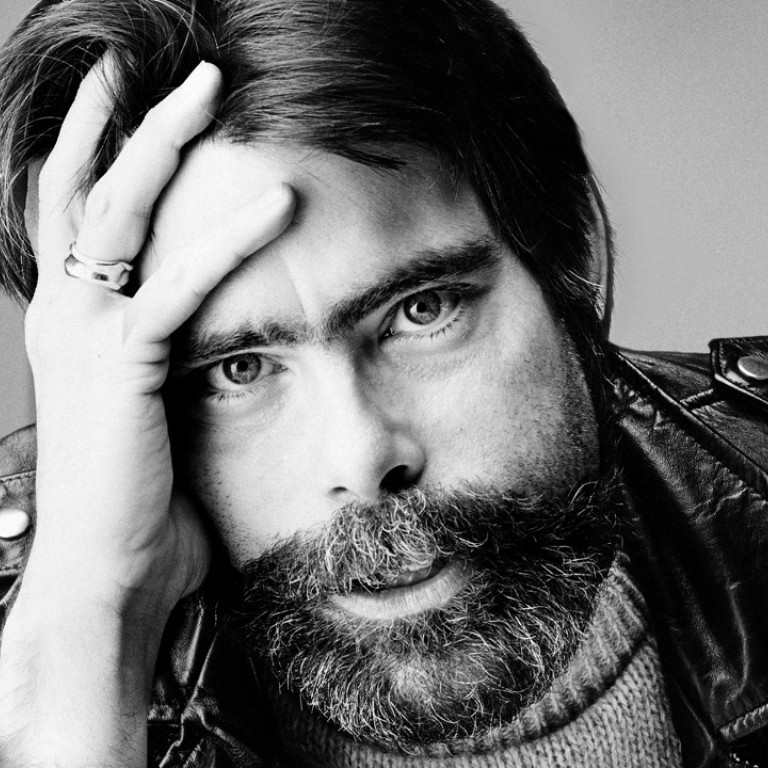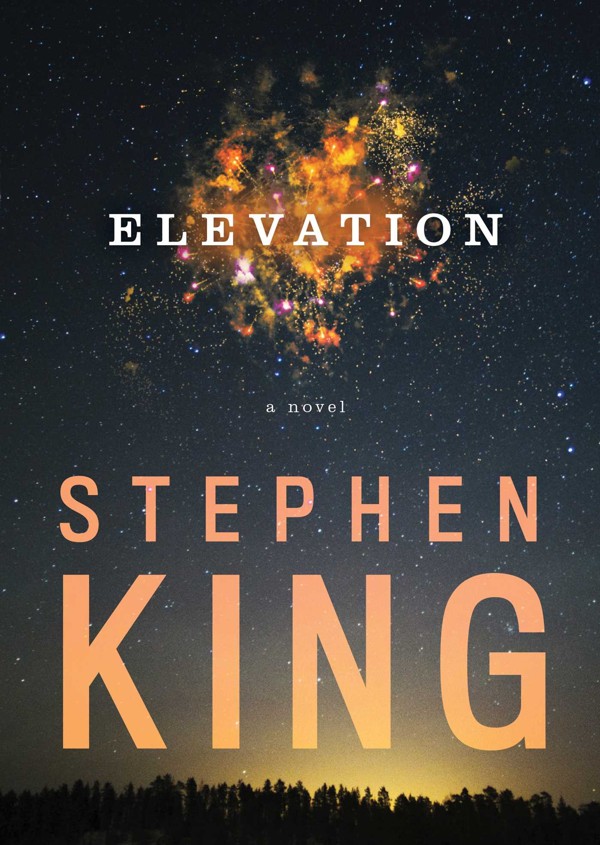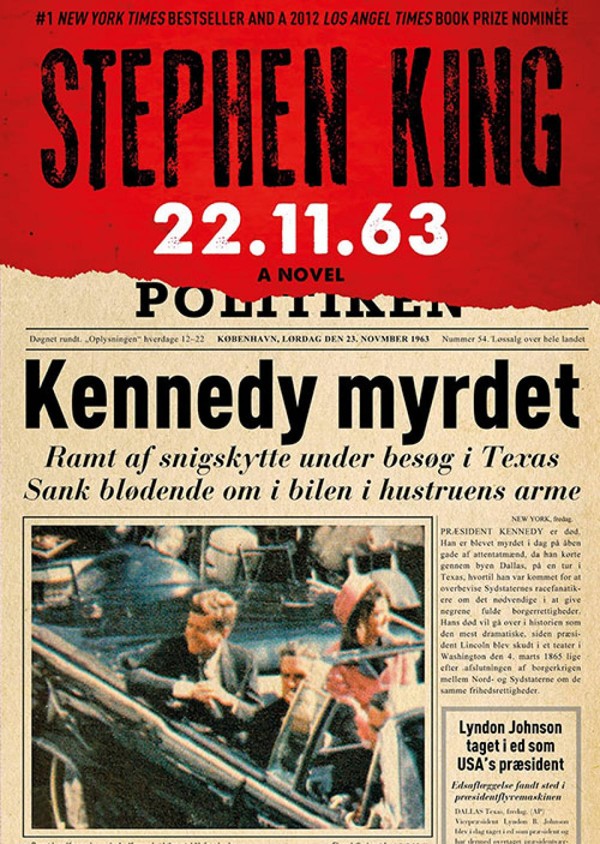
Stephen King’s slim new book Elevation is his best since 22.11.63 and tackles weighty issues
- King returns to Castle Rock with an uplifting tale that mixes the magical with the mundane
- Story follows a man who is fast losing weight but shows no sign of change
by Stephen King
Scribner
4 stars
Elevation is on first sight a slight novel. Clocking in at just over 100 sparsely printed pages, it does not cover much ground or occupy much time. And yet it is Stephen King’s most enjoyable book in an age – certainly since 22.11.63.
Stephen King sells movie rights to teenagers for US$1
Since that enjoyable, if overlong, slice of alternate history (involving the JFK assassination), King has dabbled in horror-crime mash-ups that have won him prizes, but done little to advance his art. He is always keen to acknowledge his influences (Elevation itself pays characteristically sly homage to the US television series Gunsmoke), but his recent debts to tradition have been as self-indulgent clichés: macho police striving to do the right political thing, or supernatural baddies encased in nightmarish comas who affect events with the power of their dastardly minds.
So what elevates Elevation? For one thing, King is working where he does (and knows) best: small-town America (Castle Rock), bucolic and civilised on the surface, but divided and violent down in darkened sewers. King was exploiting this light-dark/up-down dynamic back when Blue Velvet and Twin Peaks were but glints in David Lynch’s eye.
In Elevation, lightness not only battles darkness but heaviness too. This is a slight novel that is itself about slightness and slighting and feeling slighted.

King’s fantastical McGuffin is Scott Carey who is losing weight, and fast. For Carey, the shortcomings seem short indeed. His body shows no sign of change. His clothes still fit, his middle-aged belly still protrudes, his muscles, designed to bear his overweight form, propel his descending kilos with increasing ease. Pretty weird, right?
But what’s really weird is that Scott weighs the same clothed as unclothed, with his pockets empty or filled with change. Anyone he touches is also thereby rendered weightless. It’s like (as one character hypothesises) an anti-gravitational force field has surrounded him in a tender embrace.
In King’s 1984 novel Thinner (written as Richard Bachman), extreme weight loss was a cause for moral concern, the result of a gypsy’s curse and the lead character’s inner degeneracy: Billy Hackett was a smug, overweight lawyer with no self-control, so ’nuff said.
In Elevation, Scott’s vanishing heft does not diminish him anywhere except his bathroom scales. Divorced but content, his work as a website designer is on the up and up, and physically and mentally he has not felt better in years.
The only blot is his neighbours, Missy and Deirdre, married lesbians who run a local restaurant called Holy Frijole. When they aren’t working or (according to local bigots) throwing their unholy matrimony in people’s faces, they jog together with their dogs, who in turn do their doggy business on Scott’s front lawn. All attempts at complaint are met with froideur by Deirdre, who regards Scott frostily as the sort of homophobe that seems to fill Castle Rock.
Ewan McGregor on Doctor Sleep, Stephen King’s The Shining sequel
Peeved, Scott wages a campaign to win Deirdre over. When calling out a gang of chauvinists at the local diner fails to do the trick (Deirdre can do her own dirty work, thank you very much), Scott finally overwhelms her defensiveness at the end of Castle Rock’s Thanksgiving runathon.
Scott bets Deirdre he can beat her at a canter, which at least makes Deirdre, a former world-class runner no less, smile.
Little does she suspect that Scott now weighs less than her gym shorts and, propelled by those still gigantic muscles, he keeps up with her until the end, when a freak thunder storm throws them both into a loop. When Deirdre stumbles, Scott helps her over the finish line. A photograph in the local paper of Deirdre, Missy and Scott in amiable embrace rehabilitates everyone involved, and the Holy Frijole thrives.

If the good news is the creation of Castle Rock’s first liberal clique, the bad news is that Scott’s impersonation of a deflating balloon is no joke. When he isn’t hanging out at the Holy Frijole or skipping up and down stairs, he is calculating the exact moment he will hit zero.
Is he set for take-off? Will he go pop if he mishandles a porcupine? In one nicely judged scene mixing comedy and frustration, Scott slips on ice and, like an empty plastic container, cannot gain sufficient traction to stand up.
At dinner with his newly cherished, right-on friends, Scott says goodbye, insisting he faces the end with only Deidre by his side. When his long-time mate Dr Ellis asks how he feels, Scott says: “Elevated.”
What underlines the story’s understated emotional heft is the quiet joy of the preceding paragraph. Scott recalls the unbearable lightness of the run when “the whole world had stood revealed in the usually hidden glory of ordinary things”. The sentiment sounds faintly sacred, like one of Gerard Manly Hopkins’ more subdued moments.
Through this, King reminds us that Scott has not been shedding kilos so much as the everyday baggage that prevents direct communion with the world around us. “Finally I’m free of all the weight I’ve been carrying,” as Thom Yorke sang on Radiohead’s Separator.
Book review: Stephen King’s Doctor Sleep
Something similar applies to King’s writing. Unlike his recent novels, he isn’t trying too hard – to impress, or shock, or occupy new genre territory, or fill 900 pages in the belief this makes him Tolstoy. He has a neat idea, which he follows to its logical, if curbed conclusion, all the while sending an optimistic little message in a bottle. More of the same please.

